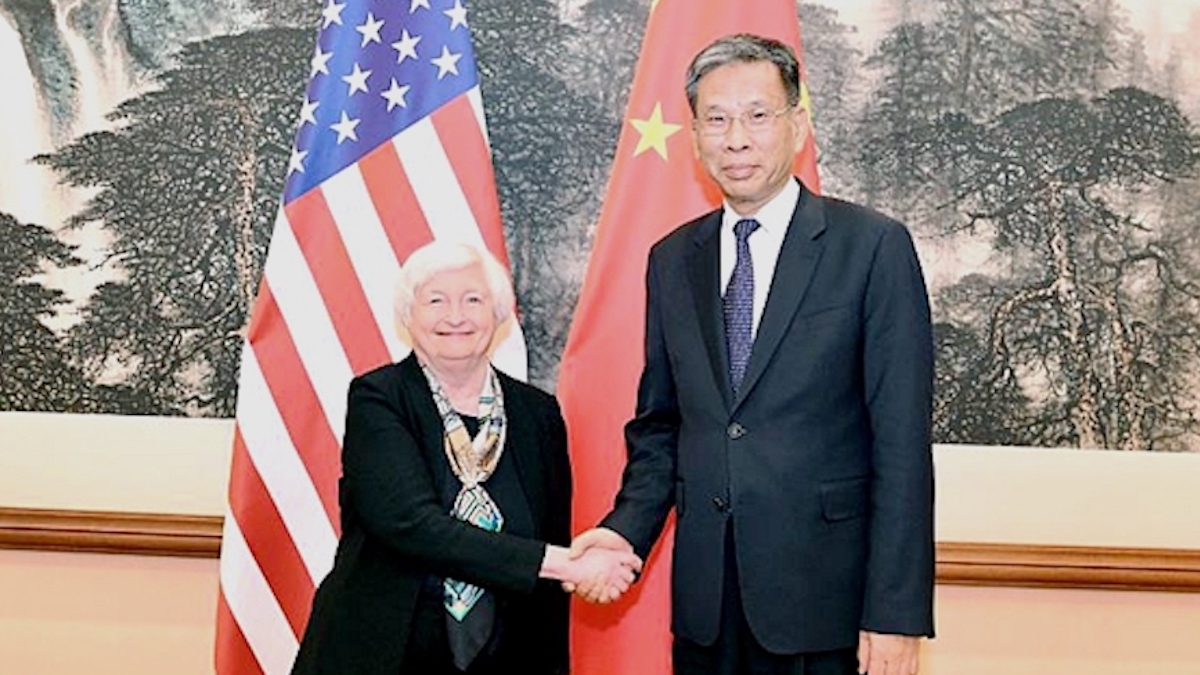China has been stealing technology and design for decades and got sanctioned. That’s what happens.
Demand all you want, but nobody’s going to trust you enough to deal as long as you keep advocating for corporate espionage against “trade partners.”
Conducting a cultural genocide isn’t helping, of course, but really even just the theft of data and technology is enough.
Considering the US built itself on a foundation of corporate espionage… Well, duh? Everyone does it, including American companies on other American companies. If your technology lags behind others, corporate espionage is the easiest way forwards. Globalization was supposed to slow down corporate espionage by making the technology more easily available (as evidenced by the relatively mundane technology that gets stolen today), but that’s unraveling.
Corporate espionage is reason for sanctioning companies, not countries. If your IP is necessary for national security, it should be owned by the government and protected as such. Otherwise, I have no sympathy for private profit-driven companies losing their competitive advantage because of decades of underfunding on their cyber security systems.
The “relatively mundane technology that gets stolen today”? Like hypersonic missile guidance systems? Every type of personal data of entire populations? Turbines that power literally every major source of power the US and China have been using since they started using electricity?
These are not mundane technologies.
As for sanctioning companies rather than countries, if the companies who steal this tech are owned by the government, in whole or part, this is not a “private” theft. This is state-owned theft. Malicious action of one state against another.
Yes, the US should invest more in cybersecurity, but blaming the victim is a poor justification for theft.
Here’s where s Chinese worker literally stole a troubleshooting robot from T-Mobile, Chinese companies stole electric vehicle designs, it just goes on and on
Oh no! Not a troubleshooting robot! Whatever will they do…
Again, if it’s a state secret that’s important for national security, it should be protected by the government. It doesn’t matter who’s attacking (because, y’know, crown corporations exist and can be sanctioned as individual entities), but it matters who’s defending. An attack against T-Mobile’s troubleshooting robot or Rivian’s electric vehicle is not an attack against the US. Private companies operate in a domain where corporate espionage is prevalent. Expecting corporate espionage to not happen is silly.
Corporate espionage is how Korea (Samsung, etc.), Taiwan (TSMC), Japan (Hitachi, etc.), and China jump-started their economies. Hell, it’s how the US jump-started it’s economy and was an act that Alexander Hamilton strongly supported.
Often times it’s state-sponsored or state-condoned and certainly partially state-owned (simply because the economies of these countries are intricately tied into the success of these companies, and these companies receive significant government investment through government-owned and government-managed funds).
For more, please see Hamilton’s “Report on Manufacturing” here: https://babel.hathitrust.org/cgi/pt?id=mdp.39015014667409;view=1up;seq=3
State secrets crosses the realm into true espionage and should be punished as such, but corporate espionage? If the technology is owned by a private company, it clearly was seen to be harmless enough for the state to not bother protecting.
Interesting how you ignored the theft of hypersonic missile software and metadata of entire populations, then went straight back to victim blaming.
“simply because the economies of these countries are intricately tied into the success of these companies, and these companies receive significant government investment through government-owned and government-managed funds” - yes, this is exactly my point. State-sponsored they of IP, specifically citizen data and weapons systems is not mundane and it’s not okay.
Nobody expects theft not to happen, scarecrow, the problem is that country C is having threats against country A while stealing strategic and military data.
However you justify theft, theft is wrong, and in this case, dangerous. This is a bad thing that the Chinese government and companies are sponsoring. It doesn’t matter that other entities do it too, it’s still a bad thing.
Your incorrect argument is that because there is a LOT of rape, rape is fine. You are wrong. Rape is still horrific, malign behavior, regardless of how many people do it.
Your incorrect argument is that a rapist gets to make that determination. They don’t. It’s like saying “my rape was ok, but yours isn’t!”
That’s not how things work. It’s either ok or it isn’t.
Maybe if it was a country that didn’t built it’s entire economy on the back of corporate espionage, you might have a bit of an argument.
So your argument is repeating and agreeing with what I just told you: that a malicious act is malicious regardless of how many people do it. Thank you for conceding that point, however odd it is to frame my argument as your own argument. Given you’re still taking my side, I’m fine with it…
And then right after that you vaguely argue against yourself that because one country commits corporate espionage, it’s okay that other countries commit corporate espionage.
You’re making a case in support of my argument that malicious acts are malicious regardless of how many people commit them, and then subsequently arguing against yourself, which I do appreciate, so thank you for your support!
Protip: try not to precisely paraphrase the argument the person you’re arguing against has put forward, including their example, and then agree with their point and example; this will usually lead to you losing the argument.
There’s no reason for country-level sanctions for private corporate espionage. It’s that simple.
It doesn’t matter if corporate espionage is malicious and it’s frankly hypocritical for America to be calling out other countries’ corporate espionage.



